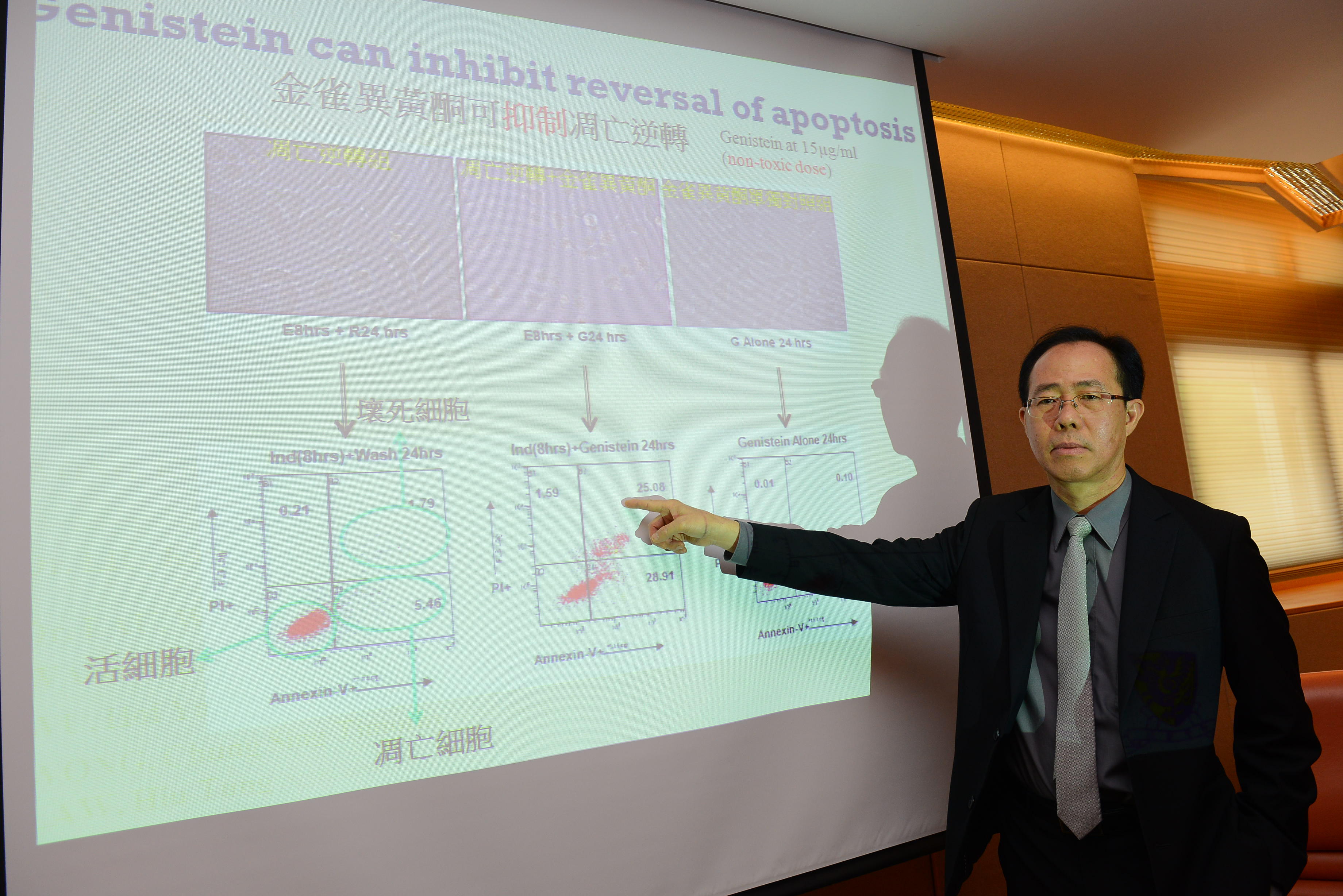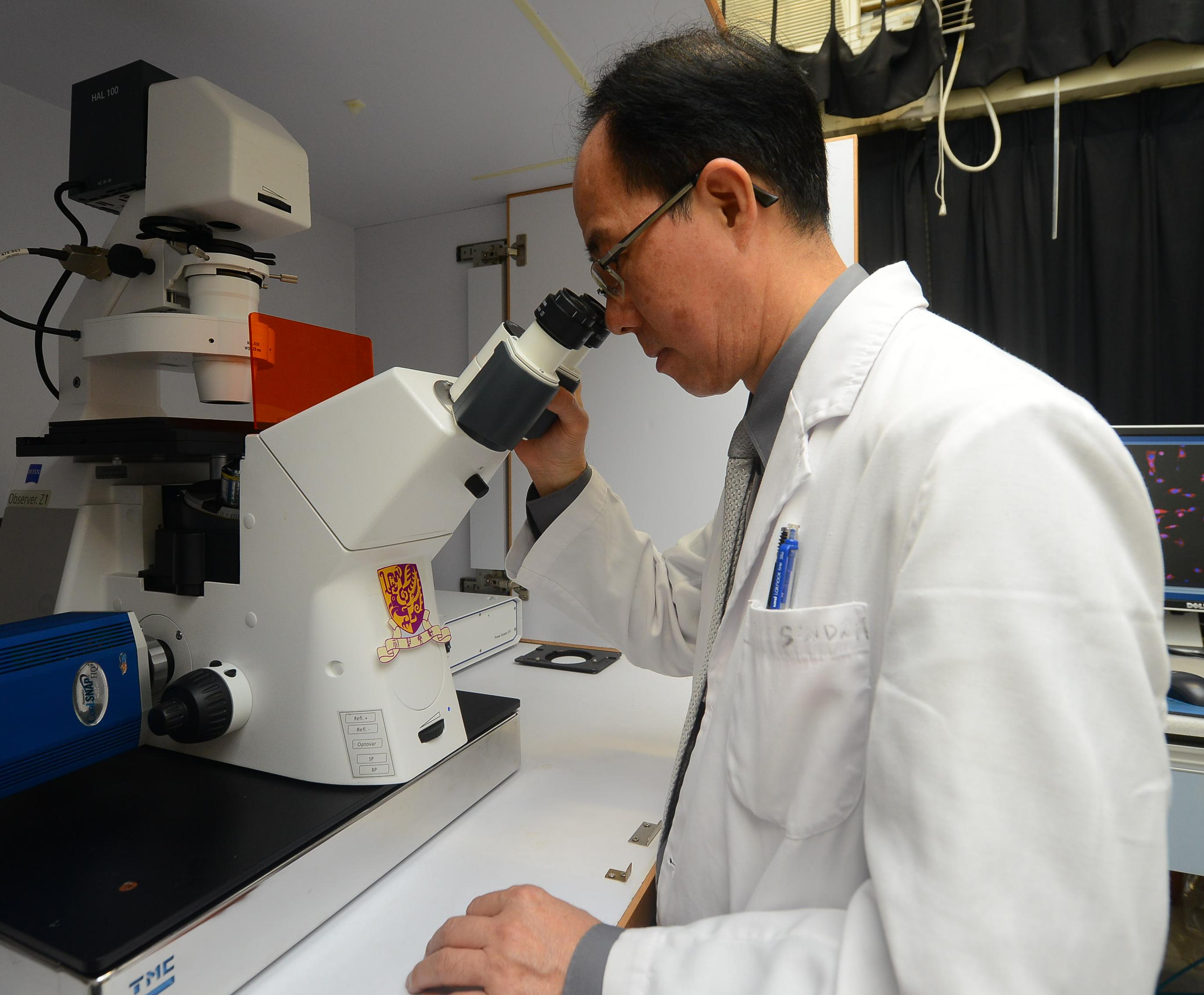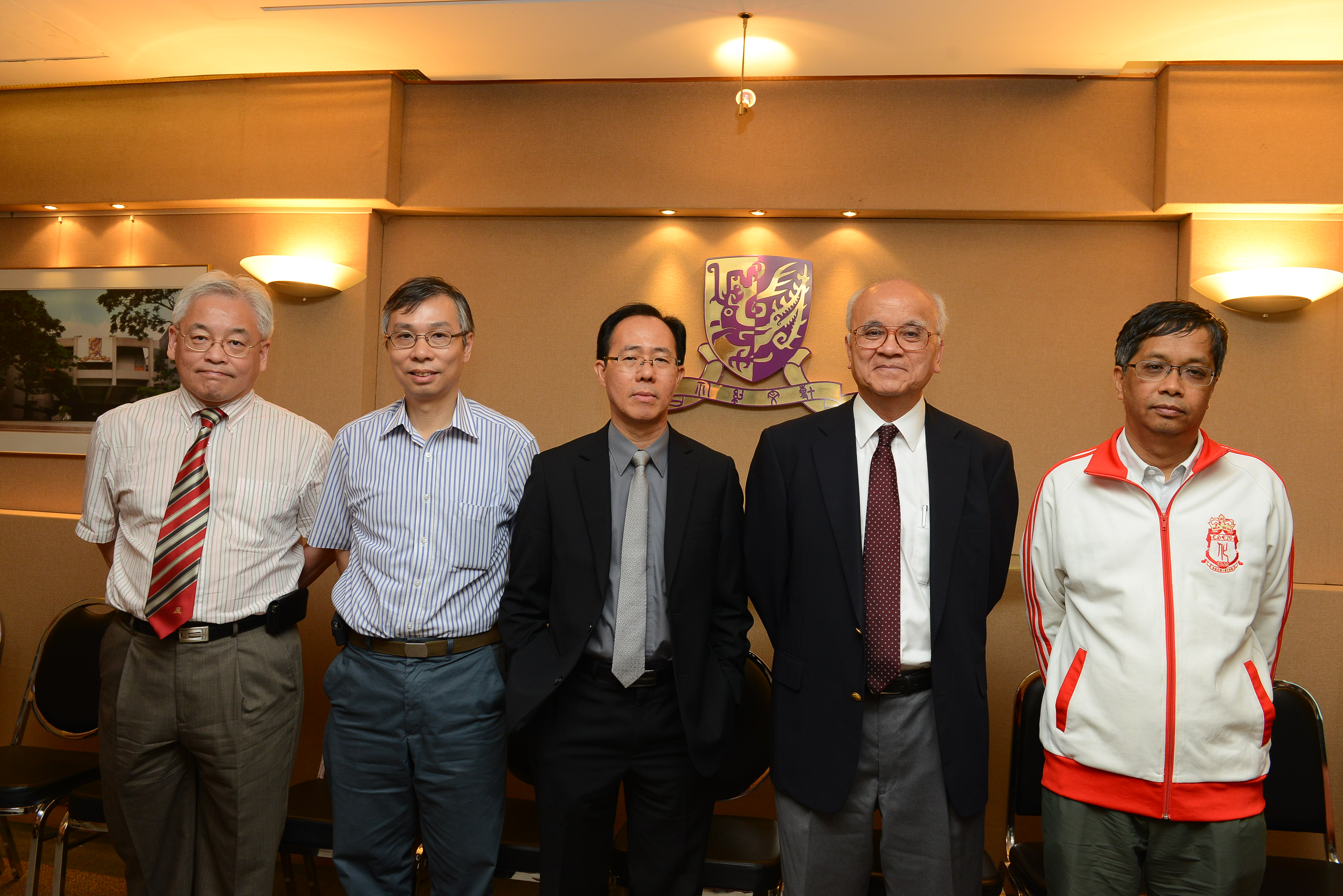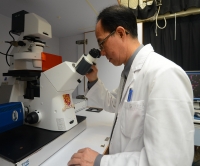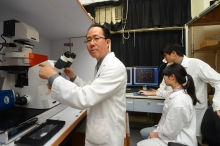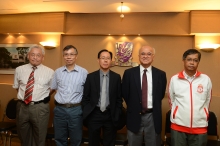CUHK
News Centre
CUHK Discovers Reversal of Dying Process in Normal and Cancer Cells, with Implications of Mutagenesis and Cancer Progression
Scientists at the School of Life Sciences and the Center for Soybean Research at The Chinese University of Hong Kong (CUHK) and The Johns Hopkins University School of Medicine found that both normal cells and cancer cells can reverse a chemical induced dying-process, namely apoptosis. The research findings will be published in the Molecular Biology of the Cell tomorrow (15 June) as a highlighted article. This ground breaking research was jointly funded by the Lo Kwee Seong Biomedical Research Fund, the Lee Hysan Foundation, the University Grants Committee Area of Excellence Scheme, and Saskia van der Stap.
Apoptosis is a programmed cell death process through which cells commit suicide when they are damaged or no longer needed in a body. In humans, apoptosis is particularly important for early embryonic development, tissue homeostasis, and cancer prevention and treatment. It is generally believed that once the cells pass critical checkpoints, the dying process is irreversible. Such checkpoints include cell shrinkage, the breakdown of mitochondria (the cell’s energy factory), condensation of nucleus, break down of DNA (the cell’s genetic blue print), and activation of a decisive group of ‘executioner’ proteins called caspases, which destroy a large number of cellular targets.
Strikingly, a research team led by Professor Fung Ming-Chiu from the Schoolof Life Sciences, reported in 2009 that human cancer cells could evade the apoptotic dying process even after passing the presumed point of no return, and this may be one of the causes of cancer recurrence. The finding was widely reported by the media such as BBC news, Drug Discovery News, The Times, Scientific America, local media and newspapers in Europe. Subsequently, the team started studying this phenomenon in normal cells to see if the cells could also escape the dying-process. The new findings reveal that primary cells isolated from mouse, rat and ferret could also reverse apoptosis. This phenomenon was named ‘anastasis’ (Greek for ‘rising to life’).
Professor Fung said, ‘We found that normal cells, including those derived from liver, heart, brain, blood and embryo, could recover once chemicals to induce apoptosis were removed even after passing the critical checkpoints. More importantly, some cells that survived the dying-process accumulated genetic changes, and displayed characteristics similar to cancer cells.’ On the other hand, new mutations occurred in cancer cells after anastasis. These results suggested that anastasis in cells could contribute to genetic instability and carcinogenesis. Dr. Tang Ho Lam, the principal researcher, said, ‘Although cancer recurrence is the negative consequence, the reversal of apoptosis (anastasis) may be conducive to tissue repair and formation of new genetic combinations. Our finding provides a new route to understand the basic biology, and implicates new therapies such as enhancing the effect of chemotherapy by inhibiting anastasis, or facilitating tissue recovery by promoting anastasis.’
With further investigation, the above results have important clinical implications. The effects or doses of various forms of herbal supplements that bear anti-cancer activities without authorized prescription may not be well characterized with apoptosis. Any improper administration of anticancer drugs or herbal medicine by cancer patients may lead to anastasis of some cancer cells or normal cells, which may acquire new mutations and thus transform to more aggressive and metastatic cancers or form new tumors after cycles of improper anti-cancer therapy. These can possibly drive cancer progression and may even cause oncogenic transformation of normal cells in the body. The good news is, ongoing studies from the research group demonstrated that soybean extract, with a known anti-cancer compound called genistein, could inhibit the recovery from apoptosis in cancer cells and have a synergistic anti-cancer effect in combination with chemotherapy, leading to a possible new therapeutic treatment for cancers. Further investigation will be made on the mechanism of apoptotic recovery and the anti-cancer mechanism of genistein.
A research team led by Prof. Fung Ming-chiu from the School of Life Sciences, CUHK found that both normal cells and cancer cells can reverse a chemical induced dying process, with implications of mutagenesis and cancer progression.
From left: Prof. Wong Chong-Kim, Biology Programme Director, School of Life Sciences; Prof. Lam Hon-ming, Director, Center for Soybean Research; Prof. Fung Ming-chiu, Professor, School of Life Sciences; Prof. Sun Sai-ming Samuel, Director, State Key Laboratory of Agrobiotechnology (CUHK); and Prof. Chow Hak-fun, Associate Dean of Science, CUHK.


